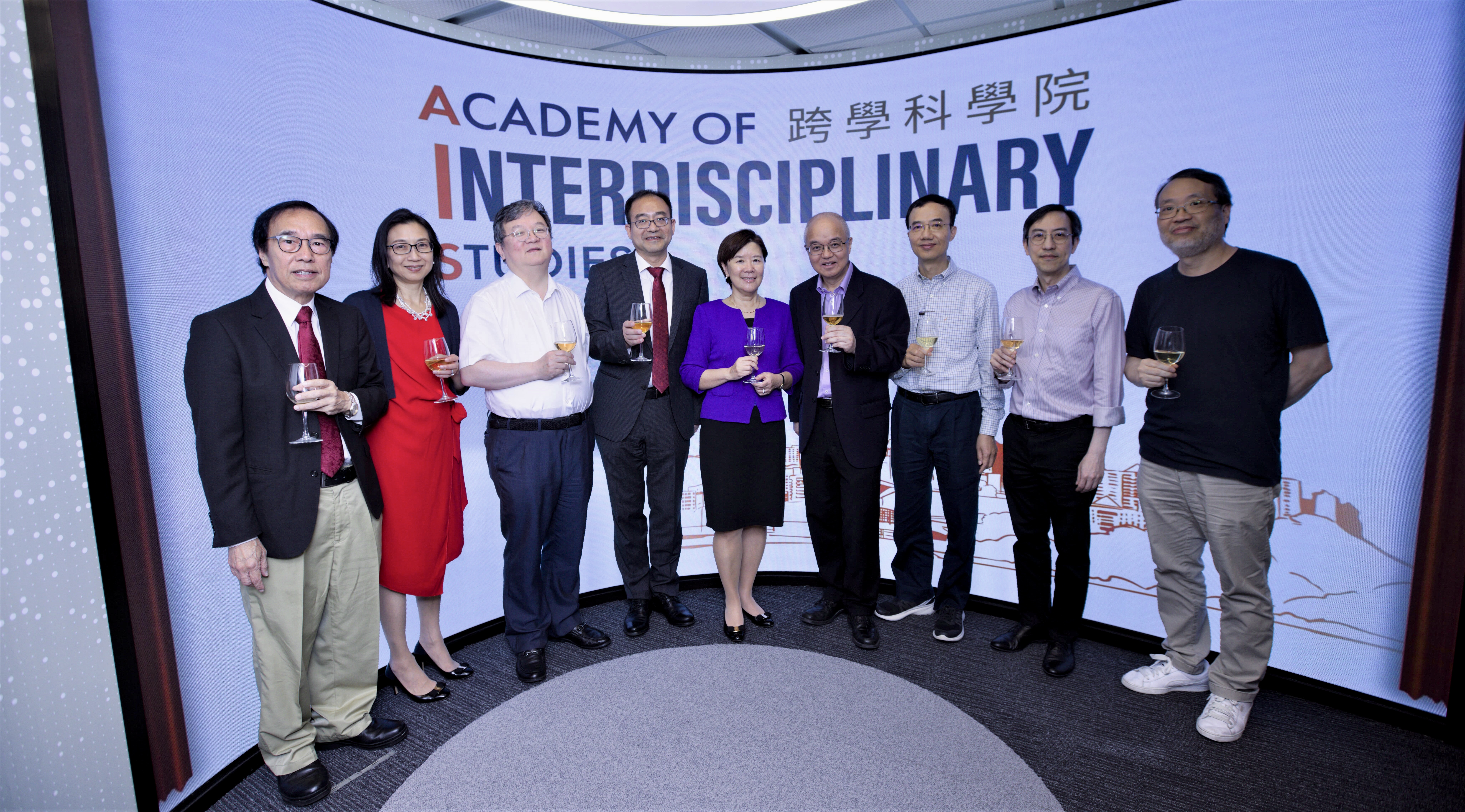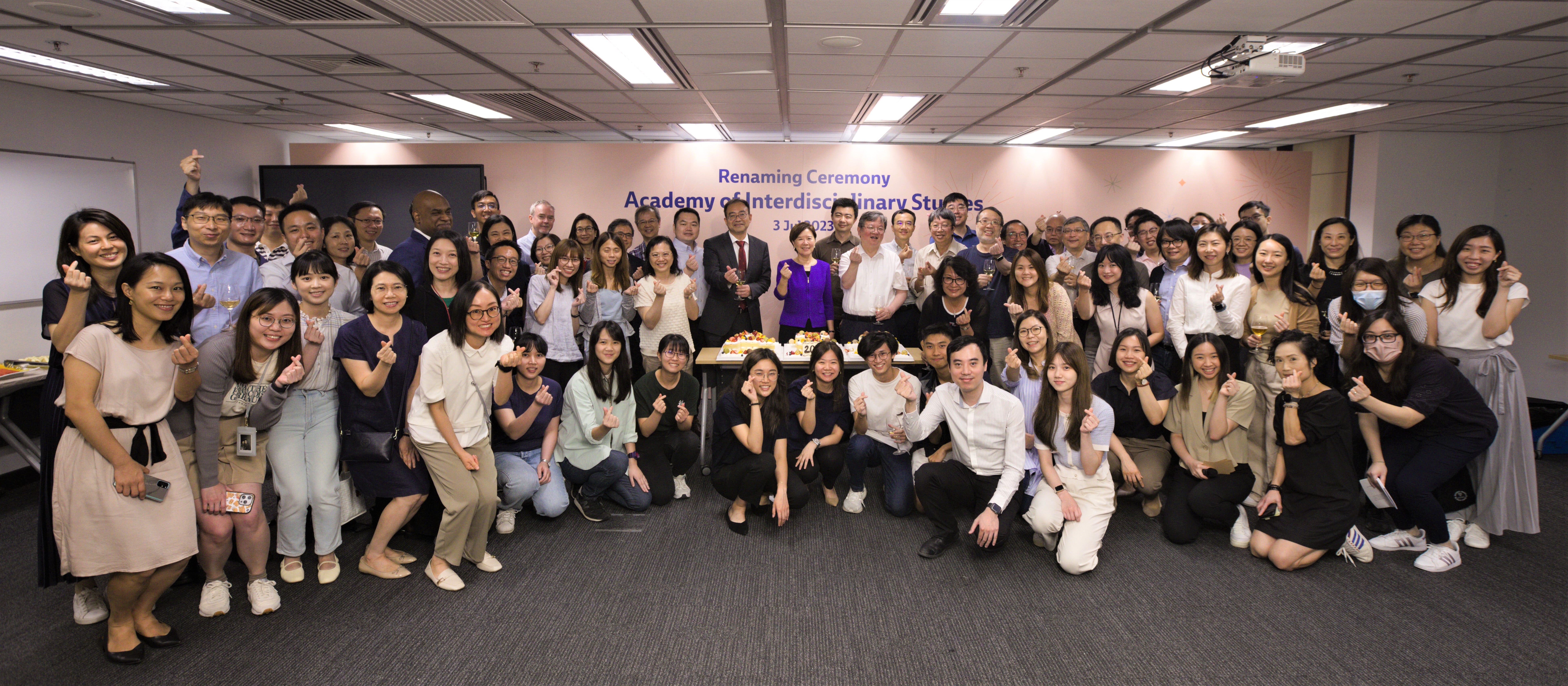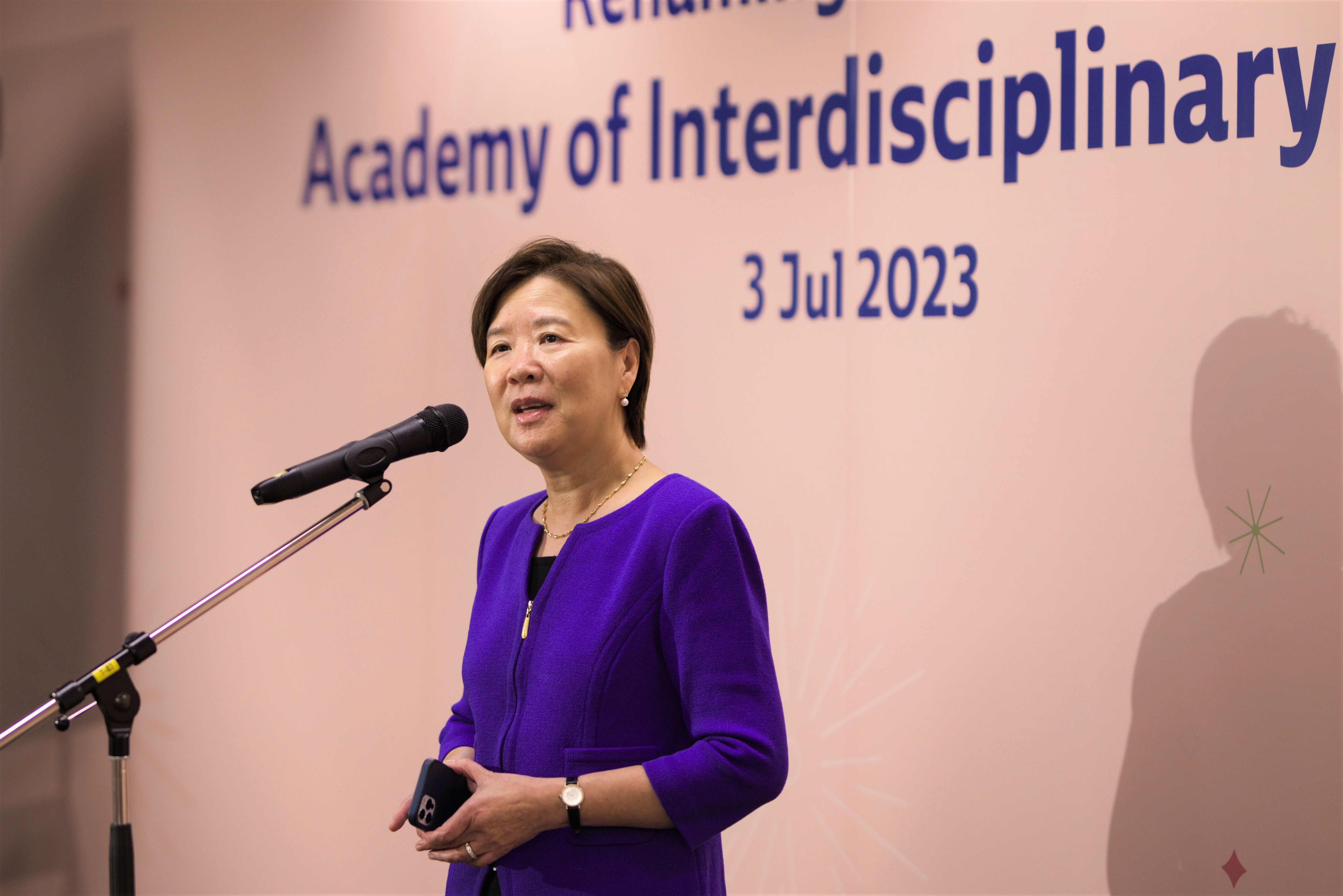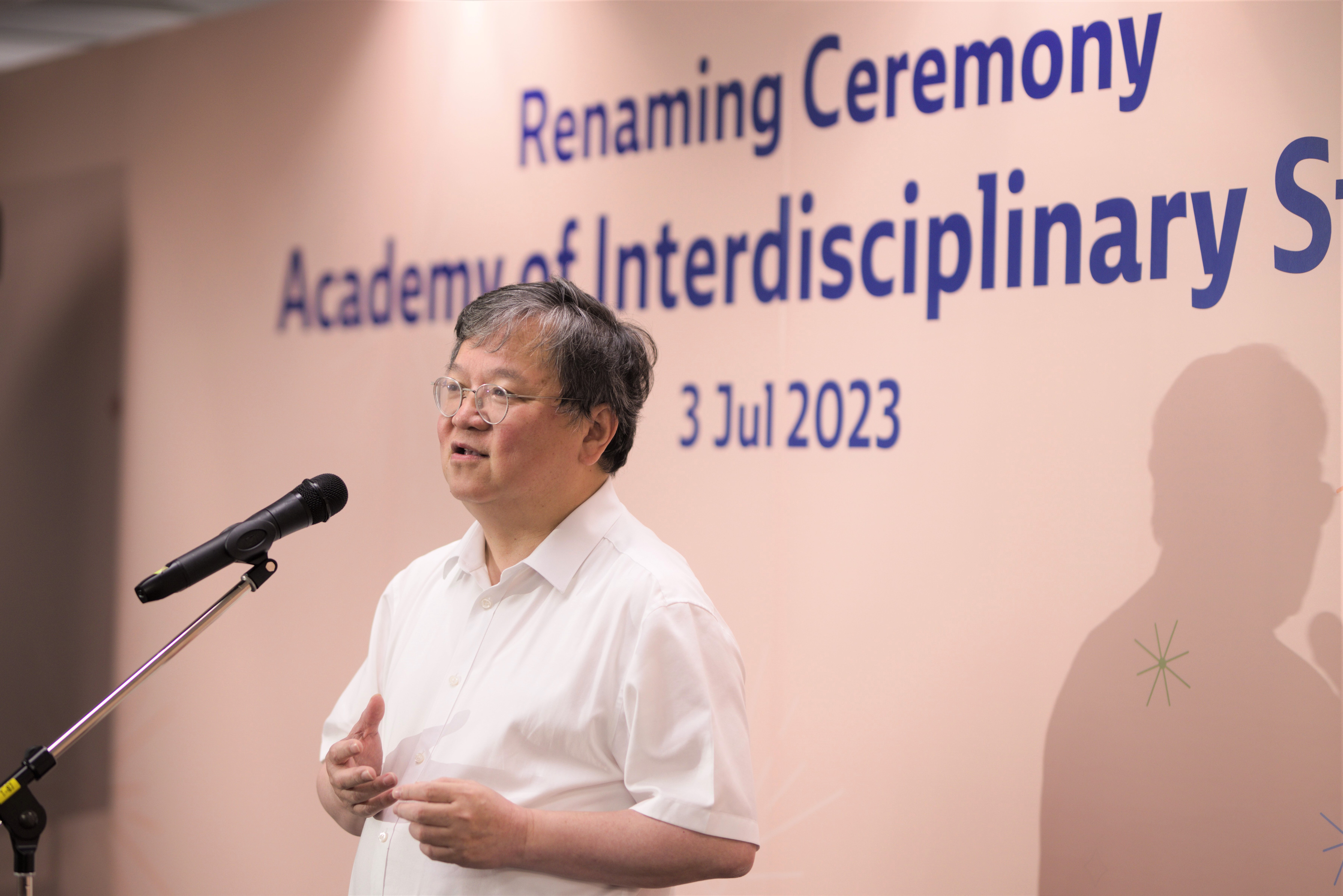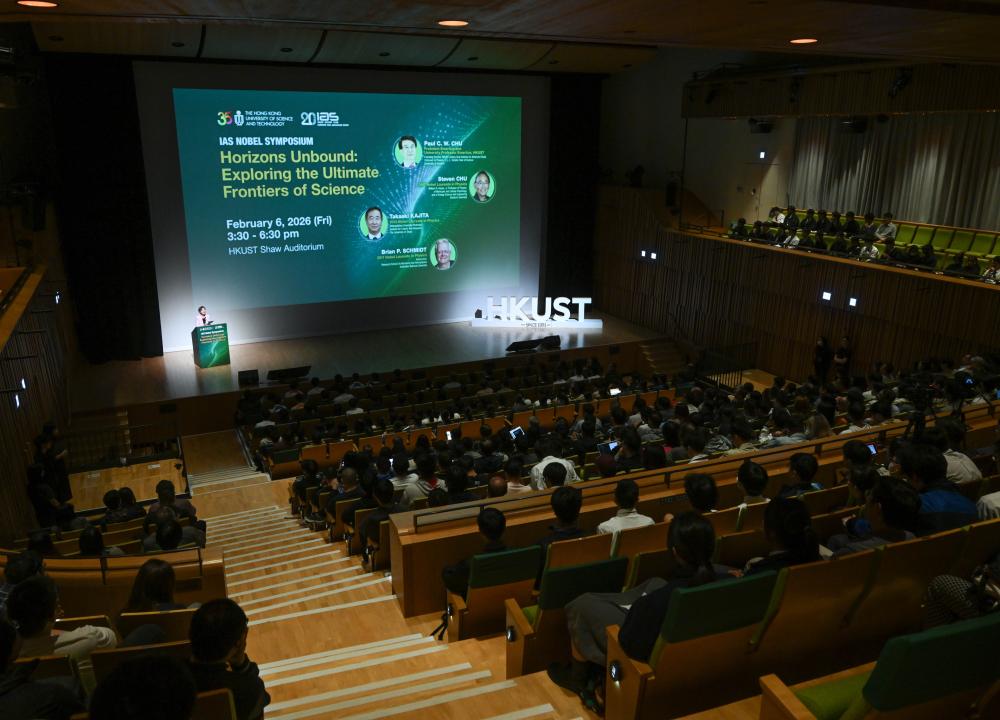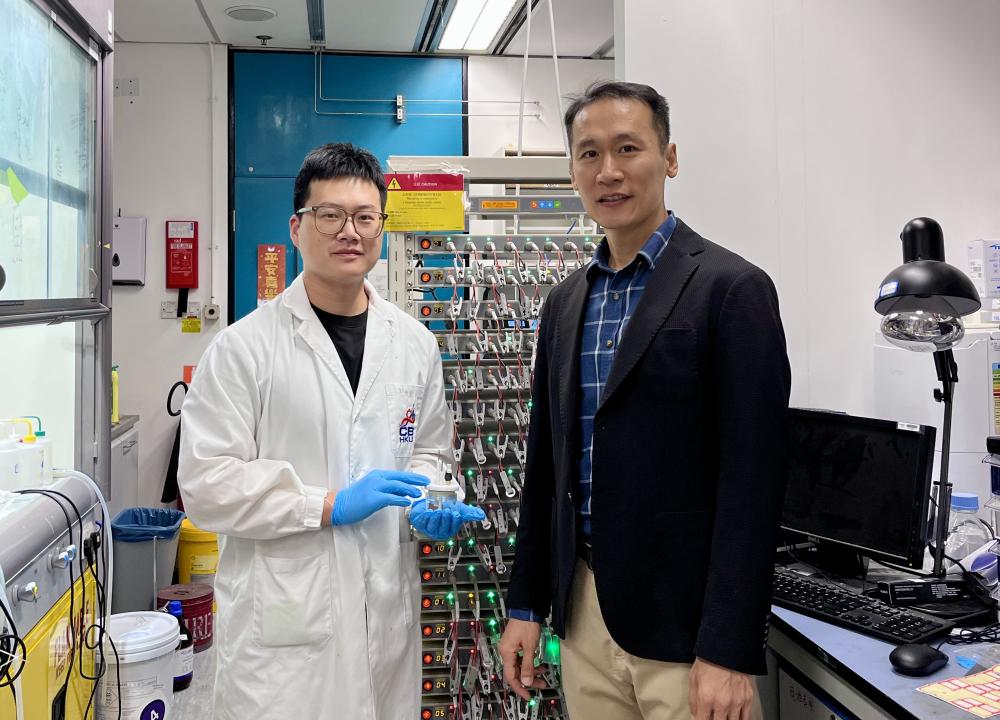HKUST Elevates Interdisciplinary Education and Research with Launch of Academy of Interdisciplinary Studies (AIS)
HKUST Elevates Interdisciplinary Education and Research: Launch of the Academy of Interdisciplinary Studies (AIS)
Interdisciplinary technology is a vital educational approach that integrates knowledge and skills from multiple disciplines. In today's rapidly evolving world, its importance is increasingly recognized for cultivating the ability to address complex challenges and driving innovation and scientific progress. To enhance interdisciplinary education and research, the Hong Kong University of Science and Technology (HKUST) has established the Academy of Interdisciplinary Studies (AIS), marking a significant step in promoting interdisciplinary technology education.
Core Principles of Interdisciplinary Technology Education
Integration of Knowledge and Innovative Thinking
Interdisciplinary technology emphasizes the integration of knowledge and the cultivation of innovative thinking. This approach not only helps students acquire a broad range of knowledge from various disciplines but also enhances their ability to solve complex problems creatively. By fostering an environment that encourages cross-disciplinary collaboration, HKUST aims to develop students' critical thinking and problem-solving skills. The holistic nature of interdisciplinary technology ensures that students can draw from diverse fields such as engineering, computer science, biology, and the arts to create comprehensive solutions to modern challenges.
Fusion of Technology and Art
One of the key aspects of interdisciplinary technology education is the fusion of technology and art. This educational model explores how the combination of technical skills and artistic creativity can lead to innovative solutions and new forms of expression. At HKUST, students are encouraged to engage in projects that merge these fields, enhancing their creativity and expanding their perspectives. For example, Art Tech, an emerging field, explores the intersection of technology and creative arts, allowing students to develop projects that can address social and cultural issues through innovative artistic expressions.
Curriculum Design for Interdisciplinary Technology
Course Content and Structure
The curriculum for interdisciplinary technology at HKUST includes a wide range of subjects such as digital media, programming, and design. These courses are designed to provide students with a comprehensive understanding of both theoretical concepts and practical applications. By integrating different disciplines, the curriculum aims to prepare students for the diverse challenges they will face in their careers. Courses are tailored to encourage critical thinking, collaboration, and innovation, ensuring that students can apply their interdisciplinary knowledge in various contexts.
Balancing Theory and Practice
A crucial aspect of the interdisciplinary technology curriculum is the balance between theory and practice. HKUST ensures that students gain hands-on experience through practical projects and laboratory work, which complements their theoretical learning. This approach not only reinforces students' understanding of concepts but also equips them with the skills needed to apply their knowledge in real-world scenarios. Practical experience is essential in fields like biodesign, where students learn to create medical devices and therapies by combining engineering and biology principles.
The Role of Interdisciplinary Technology Laboratories
Laboratories as Innovation Hubs
Interdisciplinary technology laboratories at HKUST serve as innovation hubs where students and faculty collaborate on cutting-edge research and projects. These labs provide a dynamic environment for experimentation and creativity, fostering the development of innovative ideas and solutions. For example, the Academy of Interdisciplinary Studies will host labs dedicated to emerging fields such as Art Tech and Biodesign. These labs are equipped with state-of-the-art facilities that allow for advanced experimentation and development of new technologies.
Research and Project Development
The laboratories at HKUST play a critical role in supporting both student and faculty research initiatives. By providing access to advanced technologies and resources, these labs enable the development of pioneering projects and the exploration of new interdisciplinary frontiers. Students are encouraged to participate in research that addresses real-world problems, preparing them for future careers in interdisciplinary fields. Faculty members also benefit from these resources, enabling them to conduct groundbreaking research that can lead to significant advancements in their respective fields.
Development of Interdisciplinary Technology Majors
Career Preparation and Employment Prospects
Interdisciplinary technology majors at HKUST are designed to prepare students for a wide range of career paths. By equipping them with diverse skills and knowledge, these programs enhance their employability and adaptability in various industries. The interdisciplinary approach ensures that graduates are well-prepared to meet the demands of the modern workforce and excel in their chosen careers. Graduates can find opportunities in sectors such as technology, healthcare, environmental science, and the creative industries, where their ability to integrate different disciplines is highly valued.
Industry Demand and Educational Adaptability
The demand for professionals with interdisciplinary technology skills is growing across various sectors. HKUST continuously adapts its educational programs to align with industry needs, ensuring that graduates possess the competencies required by employers. By staying abreast of technological advancements and industry trends, HKUST maintains the relevance and effectiveness of its interdisciplinary technology education. This adaptability is crucial in fields like artificial intelligence, where rapid advancements require continuous updating of the curriculum to ensure students are learning the latest technologies and methodologies.
Challenges and Opportunities in Interdisciplinary Technology Education
Resource and Funding Challenges
One of the primary challenges in interdisciplinary technology education is securing adequate resources and funding. HKUST addresses this by leveraging partnerships with industry and government to support its programs. These collaborations help provide the necessary infrastructure and financial support to sustain and expand interdisciplinary initiatives. For instance, funding from corporate partners can help establish new laboratories, provide scholarships for students, and support research projects that push the boundaries of interdisciplinary technology.
Keeping Pace with Technological Advancements
Interdisciplinary technology education must keep pace with rapid technological advancements to remain relevant. HKUST continuously updates its curriculum and research focus areas to incorporate the latest developments in technology. This ensures that students are learning current and applicable skills, preparing them for the fast-evolving tech landscape. Regular curriculum reviews and the inclusion of emerging technologies such as AI, blockchain, and biotechnology are part of HKUST's strategy to maintain its cutting-edge educational offerings.
Conclusion
The establishment of the Academy of Interdisciplinary Studies (AIS) at HKUST underscores the university's commitment to advancing interdisciplinary technology education. By fostering the integration of knowledge, promoting innovative thinking, and providing practical experience, HKUST is preparing students to become future innovators and leaders. Interdisciplinary technology education is essential for addressing global challenges and driving progress in various fields. The AIS aims to create a new generation of professionals who can bridge the gap between different disciplines, leading to more comprehensive and impactful solutions to the world's most pressing issues.
FAQs
1. What is interdisciplinary technology education?
Interdisciplinary technology education integrates knowledge and skills from multiple disciplines, fostering innovative thinking and problem-solving abilities in students.
2. Why is interdisciplinary technology important in modern education?
It is crucial because it helps students address complex, real-world challenges by combining diverse perspectives and expertise from various fields.
3. How does HKUST support interdisciplinary technology education?
HKUST supports it through its Academy of Interdisciplinary Studies (AIS), offering specialized programs, innovative research opportunities, and collaboration across different disciplines.
4. What career opportunities are available for graduates of interdisciplinary technology programs?
Graduates can pursue careers in diverse fields such as digital media, programming, design, AI, sustainability, and more, thanks to their broad skill set and adaptability.
5. How does HKUST keep its interdisciplinary technology curriculum relevant?
HKUST continuously updates its curriculum to incorporate the latest technological advancements and industry trends, ensuring students learn current and applicable skills.
The Hong Kong University of Science and Technology (HKUST) has taken a significant step to further enhance its interdisciplinary research and education by turning its Interdisciplinary Programs Office (IPO) into the Academy of Interdisciplinary Studies (AIS), which will serve as a hub to drive new pedagogy and interdisciplinary research in emerging areas such as Art Tech and Biodesign with flexibility and agility.
As a research university, HKUST is committed to supporting Hong Kong’s advancement into an international innovation and technology hub, and the key to achieving this lies in interdisciplinary talent development. To help attract, nurture and retain such talent, HKUST founded AIS as a hub to better support the University’s efforts in recruiting cross-disciplinary talent to steer its six research focuses1, and nurture students who could tackle the complex and multi-faceted challenges of the society nowadays.
As a new tenure home to faculty, the new-found academy will not only enjoy greater flexibility in hiring interdisciplinary faculty in new and emerging areas, it will also launch a new Master’s program in Technology Innovation, and expand existing academic initiatives to allow further integration and knowledge exchange for students from different schools, on top of the 11 undergraduate and postgraduate interdisciplinary programs that it now manages.
HKUST President Prof. Nancy IP said, "Interdisciplinary approaches have become increasingly important in education and scientific research, as traditional single disciplines are no longer sufficient to address pressing global issues such as population aging and climate change, which require cross-fertilization among multiple disciplines. The elevation of IPO to AIS not only conveys our commitment to nurturing interdisciplinary talents in support of Hong Kong’s advancement into an international I&T hub, but also marks a significant milestone for HKUST as we embark on our HKUST 3.0 journey towards becoming an eminent institution for learning, discovery, and innovation.”
HKUST Provost Prof. GUO Yike said, “In addition to nurturing new interdisciplinary programs and research, AIS will serve as a hub to drive outcome and impact of interdisciplinary studies to achieve institutional goals with flexibility and agility such as hiring faculty in emerging areas and supporting cross-campus programs to strengthen the collaboration with HKUST(GZ).”
HKUST Dean of the AIS Prof. QU Huamin said, “AIS will enhance and expand current focus areas such as environment and sustainability, public policy, and integrated system design, and further explore new pedagogical, teaching and research initiatives in emerging areas such as AI for Education, Metaverse, Art Tech, Biodesign and Interdisciplinary Scientific Computing. I am thrilled to witness the collaborative efforts of our world-class faculty members and top-notch students in generating innovative ideas and societal impacts for a better future.”
Designed by Prof. LI Zexiang, an HKUST Professor of Electronic and Computer Engineering and a legendary entrepreneur who helped nurture five unicorns and numerous startups, AIS plans to launch the new Master's program in Technology Innovation which seeks to train a group of professionals with both technical capabilities and marketing skills, in order to bridge the gap between research findings and their transformation into products and solutions for the society.
AIS will also enhance the outcome and impact of interdisciplinary studies in support of the strategic plan of HKUST, including HKUST(GZ). That includes revamping the University’s Common Core Curriculum and expanding its signature Undergraduate Research Opportunities Program (UROP) into a new initiative called UxOP. UxOP allows students to apply their knowledge and competencies and exchange with others from different disciplinary backgrounds through experiential research, teaching, internships, and the study of global challenges and opportunities. Meanwhile, the scope of “Major+X” – an academic framework HKUST launched in 2021 that allows undergraduate students the flexibility of blending a traditional major with emerging hot topics such as Artificial Intelligence (AI) and Digital Media and Creative Arts (DMCA) will also be further expanded, with new extended majors to be added.
On research, the AIS will drive breakthroughs through interdisciplinary collaboration, especially in new and emerging areas such as Interdisciplinary Scientific Computing – developing advanced algorithms and software systems that can be applied in physics, chemistry and environmental science; Biodesign – combining engineering and biology to develop new medical devices, therapies and diagnostic tools, and Art Tech – exploring the intersection of art and technology to create new forms of artistic expression and address social and cultural issues.
The new development was built upon IPO’s 15 years of solid experiences in interdisciplinary education. Established in 2008, IPO was the first academic unit in Hong Kong that provides novel and innovative study experience by bringing together different academic disciplines. Its Individualized Interdisciplinary Major (IIM) program, launched almost a decade ago, was the first program in Greater China that allowed students to tailor-make their study programs by combining courses from different departments and schools at HKUST and even other universities.
1 The six research focuses include 1) Biomedical Science and Translational Medicine, 2) Material Science and Future Energy, 3) AI, Future Computing and Electronics, 4) Innovation for Business Management and FinTech, 5) Environmental Science, Sustainability and Green Tech and 6) Art Tech and Humanities.
About The Hong Kong University of Science and Technology
The Hong Kong University of Science and Technology (HKUST) (https://hkust.edu.hk/) is a world-class research intensive university that focuses on science, technology and business as well as humanities and social science. HKUST offers an international campus, and a holistic and interdisciplinary pedagogy to nurture well-rounded graduates with global vision, a strong entrepreneurial spirit and innovative thinking. Over 80% of our research work were rated “Internationally excellent” or “world leading” in the Research Assessment Exercise 2020 of Hong Kong’s University Grants Committee. We were ranked 3rd in Times Higher Education’s Young University Rankings 2022, and our graduates were ranked 30th worldwide and among the best from universities from Asia in Global Employability University Ranking and Survey 2022. As of early 2023, HKUST members have founded 1,645 active start-ups, including 9 Unicorns and 11 exits (IPO or M&A), generating economic impact worth over HK$400billion. InvestHK cited QS World University Rankings by Subject 2021 to demonstrate the performance of five world’s top 100 local universities in several innovation-centric areas, among which HKUST ranked top in four engineering and materials science subjects.









